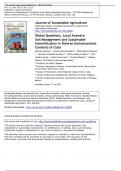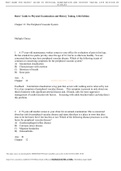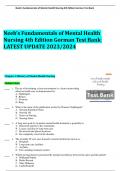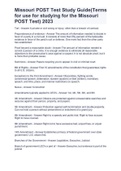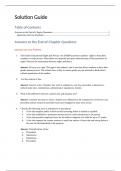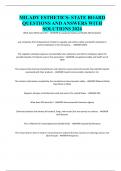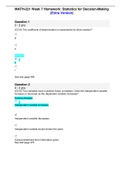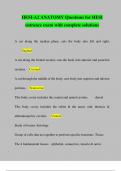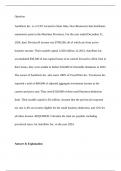Tentamen (uitwerkingen)
Soil Management and Sustainable Intensification in Diverse Socioeconomic Contexts of Cuba
- Vak
- Instelling
lobal Questions, Local Answers: Soil Management and Sustainable Intensification in Diverse Socioeconomic Contexts of Cuba NILS MAX MCCUNE,1 YANETSY RUIZ GONZÁLEZ,2 EDITH AGUILA ALCÁNTARA,2 OSVALDO FERNÁNDEZ MARTÍNEZ,2 CALIXTO ONELIO FUNDORA,2 NIRIA CASTILLO ARZOLA,3 PEDRO CAIRO CAIRO,2 MA...
[Meer zien]
